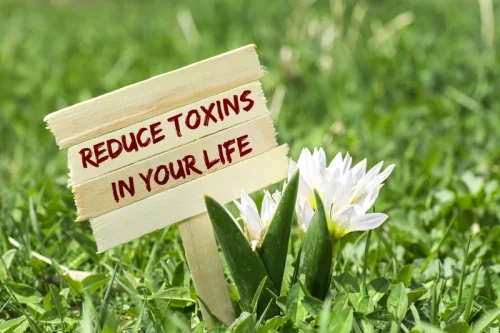
You don’t have to wait until a relapse occurs to abstinence violation effect seek help if you are concerned that you might be headed for a relapse. There are some common early psychological signs that you might be on the way to a relapse. The importance of understanding the stages of relapse and avoiding them cannot be overstated. A person who has abused a substance for a long time is likely to have a higher tolerance for its effects. As a result, when they are abstinent for a period, they will notice their tolerance has declined, making it possible for them to overdose if they start using again at the same level as before. Before any substance use even occurs, clinicians can talk to clients about the AVE and the cognitive distortions that can accompany it.
Emotional Relapse

For someone in the throws of an eating disorder (or even in eating disorder recovery), a perceived lapse in their prescribed eating plan or body image goals can trigger intense feelings of guilt, shame, and self-blame. This can create a cycle of negative emotions that may lead to further restrictive behaviors, binge eating, or other harmful coping mechanisms. This psychological phenomenon occurs when someone perceives a lapse or violation of their self-imposed rules or goals, leading to intense negative emotions and potentially triggering a cycle of further harmful behaviors. It’s commonly observed in individuals striving to maintain abstinence from behaviors like addiction, behavior changes, or eating disorders. Although many view recovery as a static state that must be achieved, practitioners and individuals working to combat the alcohol rehab AVE recognize that recovery is a spectrum, and that lapse and relapse operate on that spectrum.
Realize Behavioral Health
For example, ongoing use of the drug methamphetamine may be toxic to brain cells. CP conceptualized the manuscript, conducted literature searches, synthesized the literature, and wrote the first draft of the manuscript. SD assisted with conceptualization of the review, and SD and KW both identified relevant literature for the review and provided critical review, commentary and revision. Set realistic expectations for your recovery journey, understanding that progress may not always be linear. As with all things 12-step, the emphasis on accumulating “time” and community reaction to a lapse varies profoundly from group to group, which makes generalizations somewhat unhelpful. However, broadly speaking, there are clear features of 12-step programs that can contribute to the AVE.
Does 12-Step Contribute to the AVE?
- For example, someone who has been on a diet might have a small slip-up and then binge on unhealthy foods.
- Substance use disorders are clinical mental health disorders, meaning addiction is a matter of neurological and biological predispositions and changes that take time to rectify.
- The Abstinence Violation Effect is when there is any deviation from a desired behavior goal and this deviation is viewed as a total failure.
- Our mission is to help people respond effectively to substance use and related problems.
- In both examples, the abstinence violation effect manifests as an intense emotional response to a perceived lapse in recovery efforts, leading to further distress and potentially harmful behaviors.
Another example is Taylor, who has been doing a wonderful job taking walks and engaging in healthier eating. Taylor uses an app to watch her intake of calorie limit and does see positive outcomes to her new lifestyle. One night, she craves pizza and wings, orders out, and goes over her calories for the day. If you’re like me, you may have recently watched the Netflix show, Cheer, and thought, “I’ve got to start working out more…” But surely that isn’t the first time you’ve told yourself that. From New Year’s resolutions to the start of a new school year in September, we seem to be obsessed with clean, fresh starts where we can completely transform ourselves and our habits.
How does relapse affect the brain?
The negative emotional responses you are experiencing are related to stress, high-risk situations, or inborn anxieties. Because emotional relapses occur so deeply below the surface in your mind, they can be incredibly difficult to recognize. Twelve-step can certainly contribute to extreme and negative reactions to drug or alcohol use. This does not mean that 12-step is an ineffective or counterproductive source of recovery support, but that clinicians should be aware that 12-step participation may make a client’s AVE more pronounced. It can also be particularly vital for mental health professionals to communicate the reality of addiction.
- They may engage in compensatory behaviors like strict dieting or purging to counteract the perceived failure.
- Fortunately, professional treatment for addiction can improve outcomes for people experiencing the Abstinence Violation Effect.
- The RP model views relapse not as a failure, but as part of the recovery process and an opportunity for learning.
- Life situations, relationships, and commitments all have to be parsed through carefully and continually evaluated for balance and harmony.
- Relapse has been variously defined, depending on theoretical orientation, treatment goals, cultural context, and target substance (Miller 1996; White 2007).
- It’s commonly observed in individuals striving to maintain abstinence from behaviors like addiction, behavior changes, or eating disorders.
A single lapse does not have to result in a downward spiral of additional lapses and prolonged relapse, and a significant period of relapse does not have to culminate in a lifelong powerlessness over addictive behavior. Having healthy and effective coping strategies in place to anticipate a lapse or relapse can be pivotal, because the likelihood of never again lapsing into an addictive behavior is often quite low. So while the AVE is not a concept that relates only to addiction, strong symptoms of it can be present in substance use disorder situations. Addiction can so often be shrouded in layers of shame, blame, and misunderstanding.

Is a Relapse Dangerous?

That said, abstinence can also come from a desire to avoid a potential high-risk situation later on. For example, someone might decide to quit smoking to lower their health risks later in life, even if a single cigarette might not be life-threatening in the moment. The AVE can affect anyone, but the impact of it on someone who is managing an addiction can be more significant. That’s why adopting a more realistic, compassionate view of the recovery journey can be helpful, in addition to seeking the appropriate mental health support as needed. Research suggests that online therapy can be effective in treating things like gambling disorders and helping with smoking cessation.
